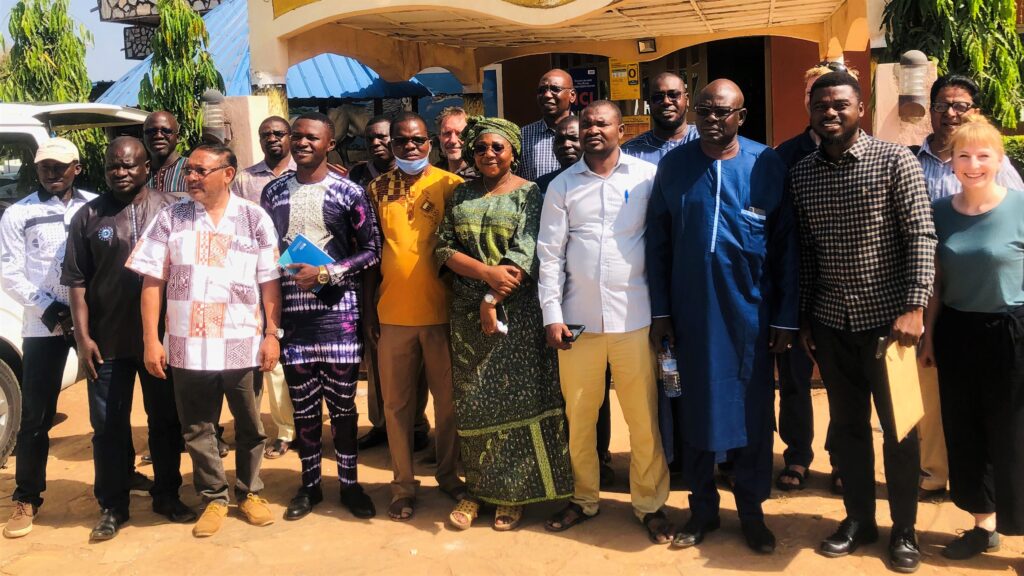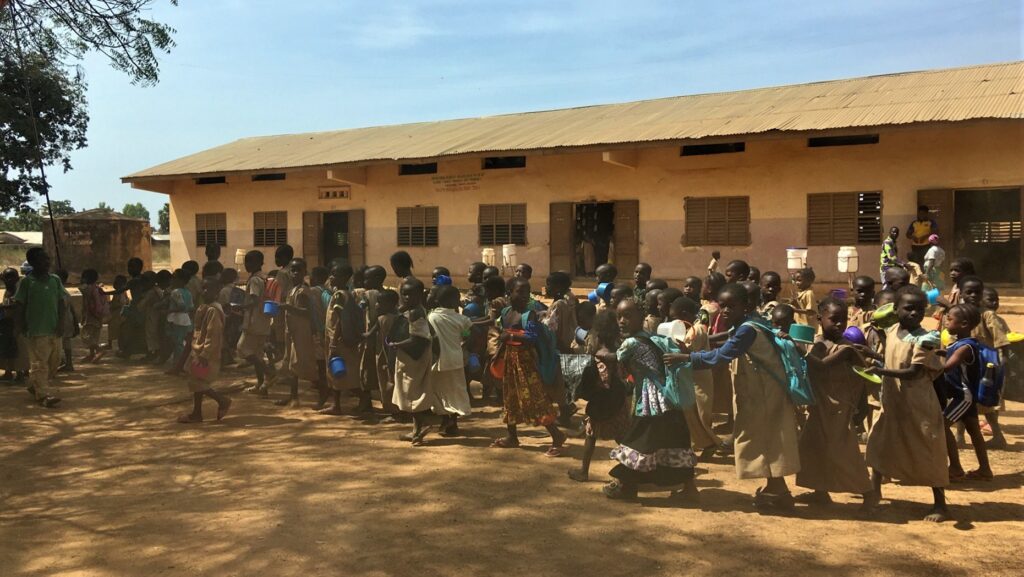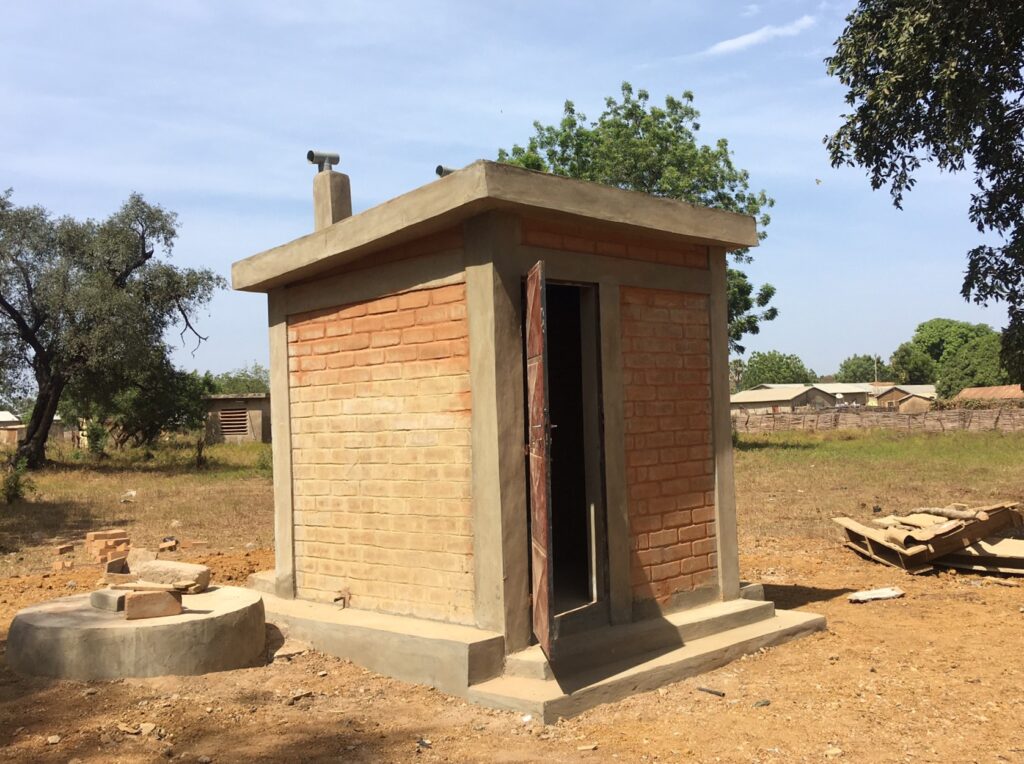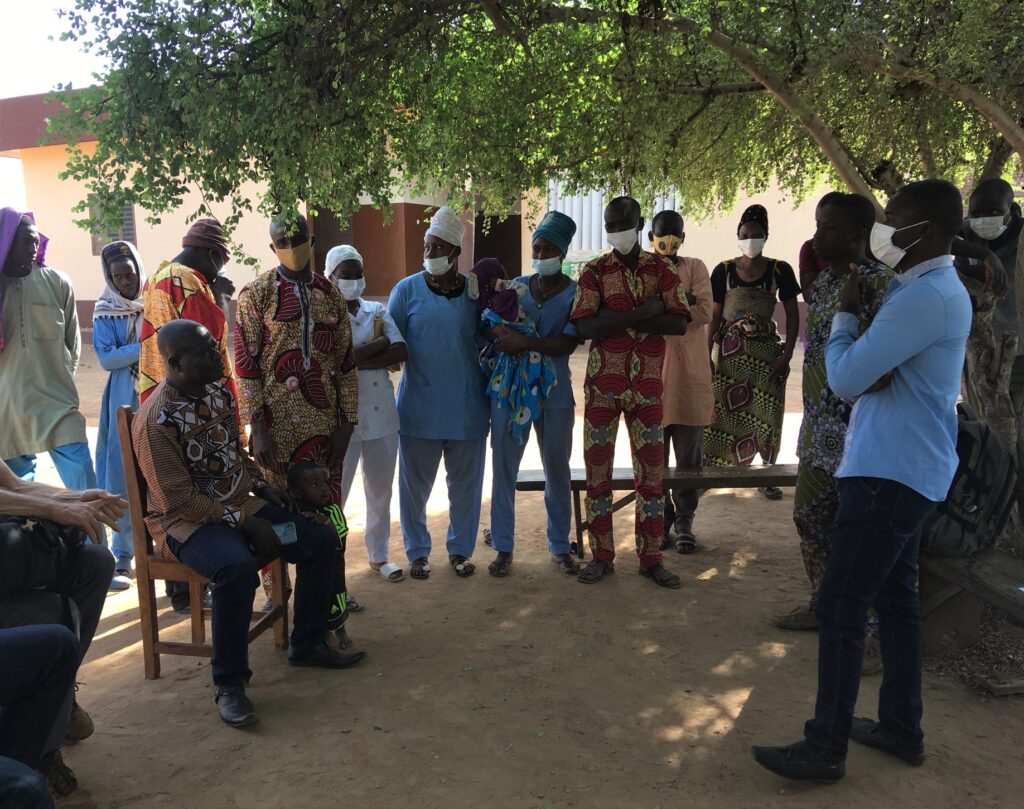18. November 2021
Contributors: Abdias Bio Sika, Jacques Louvat, Thijs van der Velden, Brigit Zuber
Photo Credits: Brigit Zuber, Abdias Bio Sika
The project teams of the Swiss Water and Sanitation Consortium (SWSC) from Mali, Burkina Faso, Niger, Madagascar and Benin met in Benin for an experience exchange. The regional Workshop took place from November 15th – 18th 2021. Twenty-three participants working in seven different projects and six organizations met to exchange, discuss and learn from each other. The workshop focused on the two signature approaches of the SWSC: Blue Schools and WASH in Health Care Facilities (WASH FIT).

Focus on Menstrual Health and Hygiene
The project teams exchanged their diverse experiences and extracted lessons learned in order to improve their project implementation. An important cross-cutting issue that the workshop focused on was Menstrual Health and Hygiene (MHH). By using the RANAS approach (Risks, Attitudes, Norms, Abilities and Self-regulation), the project teams worked on effective messages and ways of communication to fight the tabus and the misconceptions around MHH.
Spotlight on the Helvetas Project “Nim’Dora” in Benin
On Wednesday 17 November 2021, participants of the SWSC regional workshop visited the project sites of the Helvetas Benin project “Nim’Dora”. The project operates in the north of Benin in the department of Alibori. The overall objective of the project is to improve the living conditions of vulnerable people through access to safe water, improved hygiene and sanitation services. It targets twelve schools and five health facilities in the communes of Banikoara and Segbana.
During the field trip, the participants visited a school and a health centre in the commune of Banikoara:
The Public Primary School of Founougo is one of the schools where Helvetas Benin is supporting the implementation of the “Blue School” concept. A Blue School is a school that provides a healthy learning environment and introduces students to environmentally friendly technologies and practices that can be replicated in their community.

The visit to the school provided an opportunity to observe the implementation progress of the project and to discuss with the various actors in the school system, including teachers, pedagogical advisors, representatives of parents and local officials, such as the community responsibles for water and sanitation, the village chief and the district chief.
Furthermore, the team was able to visit a demonstration model of an MHH-friendly toilet. This toilet provides a safe environment for menstruating girls to wash and change inside the toilet building in the school with sufficient space, running water, soap and disposal facilities. The project also builds a borehole with a solar powered pump in the school which will provide the children with water.

At the health care facility (HCF) in Gama, which is a target HCF of the project, the workshop participants visited the centre and met the responsible staff. Before the project intervention, the health centre did not have a water point, and water had to be fetched from far away. The WASH FIT process, which was recently started, enabled the HCF to develop a WASH improvement plan. The improvement plan includes among others the instalment of a solar-powered water supply system with taps inside the HCF in all key locations, such as the treatment rooms and the maternity ward, as well as improved waste management practices. The workshop participants discussed the implementation of the WASH FIT improvement plan with the local WASH FIT committee and exchanged experiences.

Moreover, a meeting with the municipal authorities of Banikoara was held to discuss the governance of the WASH services in the area. The meeting showed how the collaboration between the project team of Helvetas Benin and the local officials evolved and was strengthened over the past five years. The project teams also exchanged their regional experiences and perspectives as well as discussed best practices with the municipal team.